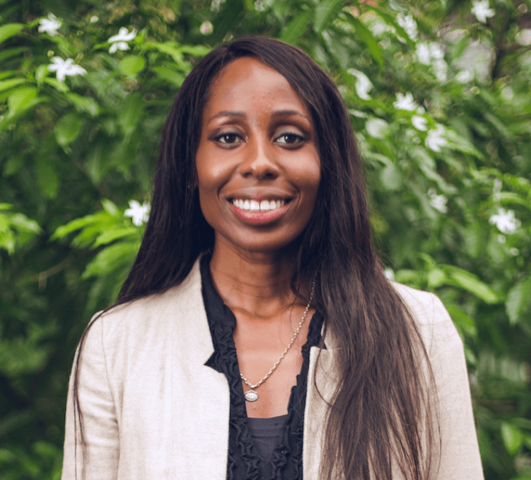If you live in an industrialized country, have a good job and get sick, all you have to do with a prescription is go to a clinic or drugstore and get it filled. You can be pretty sure that what you were prescribed is what you get.
It’s not so easy to do that in vast parts of the world, like sub-Saharan Africa. There, over 100,000 people a year die because they receive counterfeit drugs. Nigeria produces more than 60 percent of the drug supply in that region of Africa, so what happens there affects millions of people.
Vivian Nwakah was born in Nigeria, grew up in Chicago and has returned to Nigeria, determined to do something about those 100,000 deaths. She was triggered by the death of a friend who had been diagnosed with malaria and died because the medication he’d received from his pharmacy in Lagos was fake.
“Manufacturers,” says Nwakah, “have trouble getting their medications across the country, they have trouble with the lack of transparency and distribution, they have trouble with being able to control their brand and just being confident that their medication will not be adulterated. . . . You don’t know where that medication you purchased actually came from.”
In Chicago, Nwakah had helped start a chain of home health care agencies. She then studied business and finance in Atlanta, in Rio de Janeiro, and in Paris. After the death of her friend, she sought out a pharmacist she knew to join her in combating fake drugs.
There’s money being made by counterfeiting drugs—serious money—and Nwakah’s work jeopardizes those profits. Nevertheless, she has proceeded with her cause.
Medsaf is a “platform” that connects the makers of medicines, the providers of those medicines, and the patients who need them.
“Most of the drugs needed in Nigeria,” Nwakah will tell you, "are either not available or not composed properly, and getting them manufactured and then registered in Nigeria tends to be a serious problem.”
Nwakah has laid out a lot of money to keep Medsaf going. The company has to cover travel expenses for Nigeria’s Food and Drug Administration officials to inspect Medsaf’s drug manufacturers, most of which are outside the country.
“Our greatest challenge has been finding a way to deliver what the people need while also developing a plan to overcome some of the government- and economic-related obstacles that are in place.”
It’s a daunting task, but Nwakah is determined to get safe, effective medicines to the people of sub-Saharan Africa. To that end, Medsaf now has connections to over 500 pharmacies and 100 hospitals, with ever more needed to get the job done.

